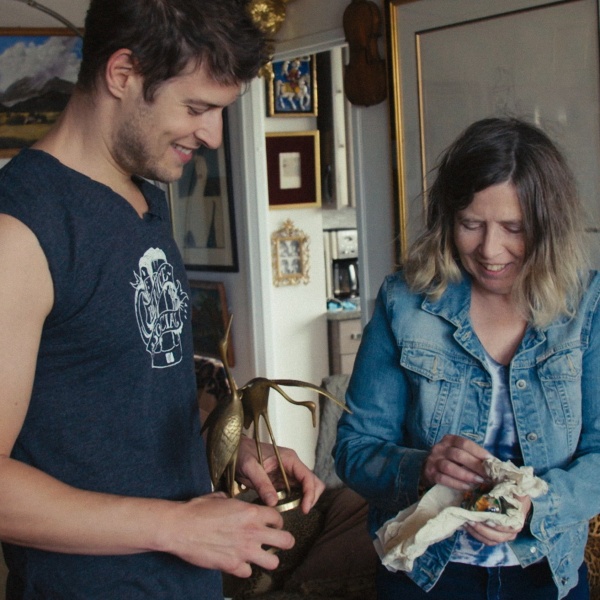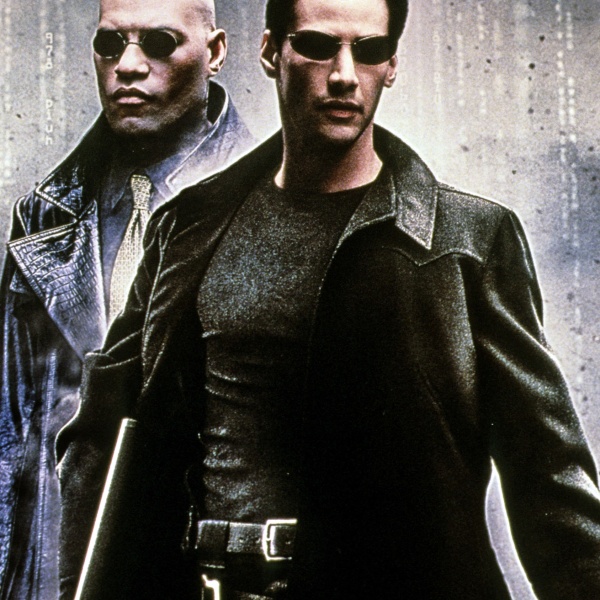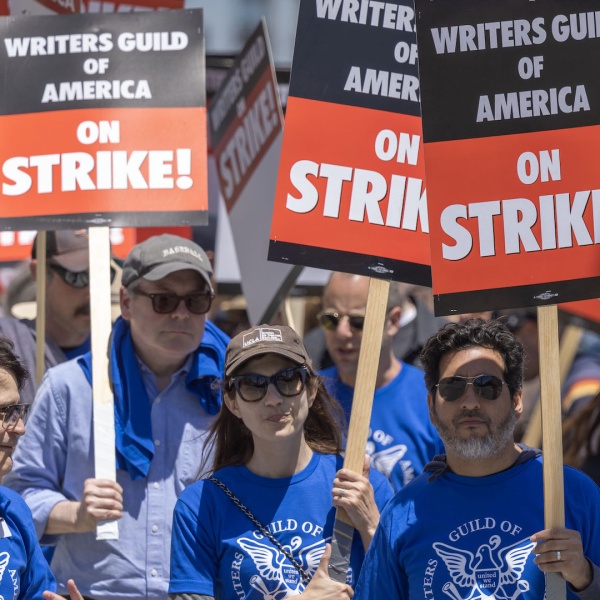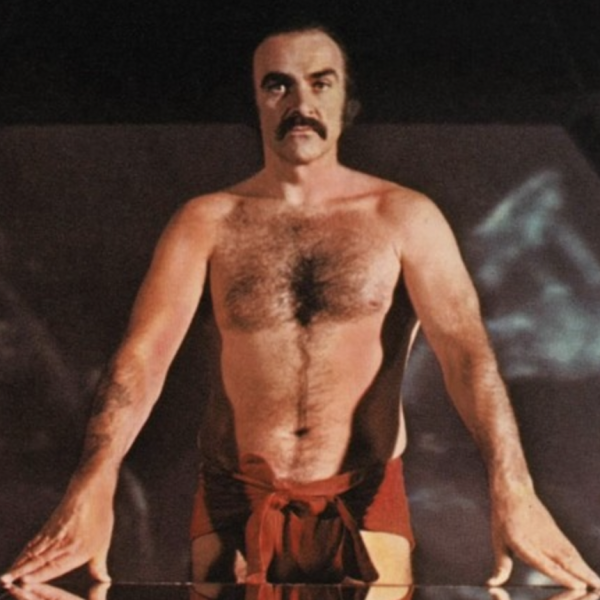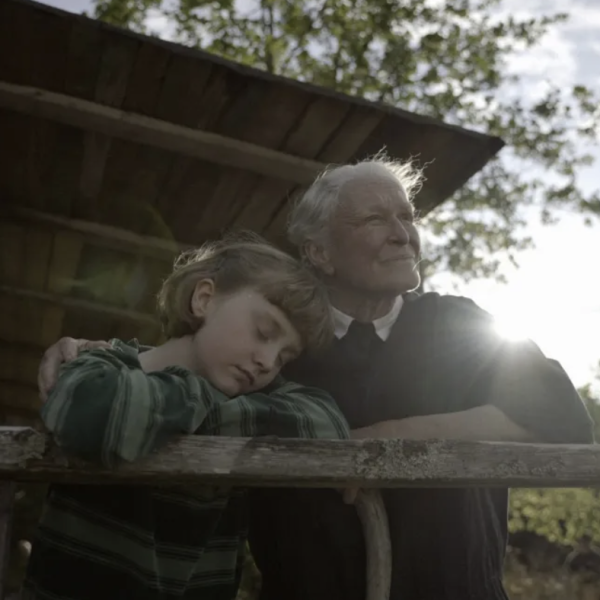While studio-backed crowdpleasers tend to dominate the headlines generated by the SXSW Film & TV Festival (like rowdy opener “Road House” and steamy closer “The Idea of You”), this year’s festival was chock-a-block with smaller offerings that a) delighted audiences and b) are still looking for distributions deals so that the may delight still more audiences. These titles run the gamut: debuts and follow-up features, narrative films and documentaries, comedies and horror joints, bonafide award winners and seemingly instant cult classics, and at least one film that hinges on the possibilities of “Grand Theft Auto.”
And while it’s still early days (the festival did, after all, just officially wrap yesterday), given the incredible assortment of films still looking for homes, we can’t help but tout their allure to all interested buyers. These aren’t just the best available films from SXSW, they’re some of the very best of the fest, full stop, and wider audiences deserve to see them, too.
If you’re looking for more of our SXSW coverage, you can find it all right here, including a look at some of our early favorites and the full run of award winners (many of which appear on this list). This list will be updated as (hopefully) these great titles find and announce their new homes.
Christian Zilko, Proma Khosla, Samantha Bergeson, and Lauren Wissot also contributed to this article.
“Adrianne & the Castle” (dir. Shannon Walsh)

“Reality is for those who lack imagination” is one of the many witticisms dispensed by Adrianne Blue Wakefield St. George, the star and subject of Shannon Walsh’s documentary “Adrianne & The Castle” and a womanwho also once proclaimed: “I am my own art.” Indeed she was. A gloriously Rubenesque force of nature who appeared to take her fashion and beauty tips from Divine, Adrianne was muse not only to herself but likewise to her adoring husband Alan St. George, who built a literal castle for — and his entire life around — his beloved wife of 30-plus years. Once an unassuming abode on a Midwest hilltop, it now resembles something more akin to the Fantasyland castle at a Disney theme park — swapping out Sleeping Beauty for Adrianne St. George, of course.
It’s also the setting for an intoxicating story about how love conquers all (even death), as Walsh’s poignant and eccentric film not only details a couple who pursued their grandiose dreams to the fullest, but also explores the profound grief those pursuits left behind in their wake. As Alan, the humble and debonair counterpart to his wife’s extravagant persona, puts it: “Art is never completed, just abandoned.” In this case, it has yet to be picked up. As the documentary market shifts away from celebrity bio-docs in favor of more diverse and unfamiliar fare, it’s easy to imagine “Adrianne & the Castle” creating a deep fanbase and drawing awards attention in the process; any of the players involved in last year’s Oscar race should leap at the chance for pole position in this year’s edition. —LW
“Audrey” (dir. Natalie Bailey)

A miserable Australian married couple: Cormack feels her dreams were stolen from her when an unwanted pregnancy forced her to abandon her acting career and devote her life to traumatizing her eldest daughter, and — in an equally tragic turn of events — Ronnie can’t get an erection without jerking off into a cornucopia of increasingly elaborate sex toys. It’s a bleak state of affairs that’s only made worse by the couple’s fraying relationships with their two young daughters, Audrey and Hannah. And yet, while “Audrey” might begin with what seems like an irreparably broken family, you’d be surprised how fast things turn around in Natalie Bailey’s feature directorial debut. It isn’t long before Ronnie rekindles her passion for acting, Cormack finds new creative outlets and unearths his buried sexual desires, and teenage Hannah is back on the fencing piste. All it takes is one beautiful act of divine intervention: Audrey falling off the roof and entering a coma after narrowly evading death.
So begins this wickedly satisfying pitch-black comedy, an ensemble satire about how much a family can perversely flourish when one cog is removed from the machine. Our increasingly narcissistic culture has spawned an entire subgenre of media that deals with the ways that simple domestic chores now feel like Sisyphean torture methods to many of us. And “Audrey” is the rare film that follows that individualistic mindset to its logical endpoint, exploring what happens once a character realizes their Main Character Syndrome is fundamentally incompatible with any kind of life that involves obligations to others. Wry, edgy, and all too relatable, this is the sort of movie that could easily develop a cult following through online chatter alone, and a streaming or VOD play could help that happen in a hurry. —CZ
“Bob Trevino Likes It” (dir. Tracie Laymon)

The year of “Barbie” is continuing right on into 2024. But we’re not talking about that Barbie: Now, it’s Barbie Ferreira‘s time to shine. The “Euphoria” breakout star, who parted ways with the HBO series ahead of Season 3, leads and executive produces “Bob Trevino Likes It,” first-time filmmaker Tracie Laymon’s autobiographical drama about a 25-year-old at-home caretaker who struggles with abandonment issues thanks to her narcissistic father (French Stewart), who Lily loves too much to recognize as the source of her woes.
When Lily is actually abandoned by her father, her plans to cyber-stalk home go awry when she accidentally friends a different man who shares her dad’s name (a carer-best John Leguizamo) and begins craving his online approval, which he’s happy to give despite working through serious issues of his own. A quiet, tear-jerker of a film ensues, one grounded in its filmmaker’s truth and carried by the surprising command that Ferreira brings to her role. Here, she proves her talent is worthy of comparison to that of her A-list “Euphoria” co-stars Sydney Sweeney, Jacob Elordi, and Zendaya, and any distributor would be smart to acquire this movie before the rest of the world figures that out. —SB
“Grand Theft Hamlet” (dirs. Sam Crane & Pinny Grylls)

The winner of this year’s Documentary Feature Competition was conceived on a purgatorial afternoon at the height of the COVID pandemic, when British actor Sam Crane — mad with frustration after the virus denied him the chance to play the title role in the London production of “Harry Potter and the Cursed Child” — spontaneously began spouting a soliloquy from “Macbeth” in an almost empty amphitheater known. The response to his performance was less than kind, as the only person in the audience immediately murdered Crane with a rocket launcher. Fortunately, Crane was performing at the Vinewood Bowl, a location in the video game “Grand Theft Auto Online,” and he was able to respawn nearby a few moments later. But that experience was enough to plant the seed of an idea between Crane and his buddy Mark Oosterveen: Why not stage a Shakespeare play within the world of Rockstar’s video game? Sure, the animation might be a little stiff (Richard Burton never had to perform the Bard with emotes alone), but it would at least be more interesting than another fucking Zoom readthrough or whatever, and it’s not like people were getting their fix of live theater anywhere else.
So begins the hilarious and unexpectedly poignant “Grand Theft Hamlet,” a documentary — shot entirely within the virtual world of “Grand Theft Auto Online” — that returns Shakespeare to his rightful place at the intersection between high and low art, and restores a palpable sense of danger to one of the stalest but still most exciting English-language plays ever written. “Hamlet” has been performed in just about every conceivable medium, country, and circumstance on Earth — Ethan Hawke delivering the tragedy’s most famous monologue in the middle of a Blockbuster Video in Michael Almereyda’s film from 2000 is proof enough of that. But it’s safe to say that this is the first time a “Hamlet” rehearsal has been interrupted by a naked alien who can’t stop picking his nose and muttering about drugs. “The show must go on” assumes new meaning when half the cast falls off the top of a blimp in the middle of Act III. So, too, does the notion that the whole world’s a stage.
Few pandemic films have better expressed the desperation to connect with a world full of people who might say “you are bitch” and shoot you in the face whenever you try to reach out. But, as Crane shouts while being murdered for the umpteenth time: “You can’t stop art, motherfuckers!” Gut-bustingly funny at times, wistfully reflective at others, “Grand Theft Hamlet” might seem most at home on a computer screen, but it’s also a legitimate crowd-pleaser, and the film would fare best in the hands of a distributor who will first allow it to thrive in the communal spaces its characters miss so much. —DE
“A Nice Indian Boy” (dir. Roshan Sethi)

Broadway actor Jonathan Groff humbly steps into Indian culture in Roshan Sethi‘s “A Nice Indian Boy,” which is itself based on a play by Madhuri Shekar, and tells a story that is fittingly determined to subvert stereotypes about Indian culture as they exist both within and outside of that community. The title itself is a cheeky twist on every aunty’s favorite refrain: that when a girl is of the right age, she or her family will find her a “nice Indian boy” to settle down with. This time, however, protagonist Naveen (Karan Soni) is the one planning to bring home a nice Indian boy, which is probably not what all those aunties were picturing. But “A Nice Indian Boy” delights in defying expectations, even as it follows a traditional love story structure. For starters, Naveen’s parents know that he’s gay, which immediately releases the film from covering a coming out story along with everything else it tries to accomplish. And as for that nice Indian boy … meet Jay (Groff). Hilarity ensues.
Like Sethi’s “7 Days,” the cultural touches in “A Nice Indian Boy” never feel like an afterthought. From the last names to the licensed songs and footage from “DDLJ” to the strategically placed song by the out-and-proud Ali Sethi, this is not a South Asian movie made with the sole purpose of peddling its South Asian-ness. Sethi’s passion for love stories is inherently intertwined in his love for Indian culture and cinema, and now with his queer identity as he applies those potent if predictable storytelling techniques. Bollywood love isn’t only for straight people (something the Indian industry is only incrementally dismantling), and in “A Nice Indian Boy,” Naveen realizes that it’s not just for Indian people either. When love is that big, it spans cultures and generations, bringing everybody together in the end. Considering Bollywood’s current popularity at the American box office, and the ample crossover potential of Sethi’s film, we’d love to see a smart distributor pick this one up for a well-planned theatrical release. —PK
“Preconceived” (dirs. Kate Dumke & Sabrine Keane)

The war on women’s rights has been happening for centuries, and while the overturning of Roe v. Wade was a devastating setback, there is another marker to check the pulse of abortion rights in the U.S.: the rise of state-funded crisis pregnancy centers.
The aptly-titled documentary “Preconceived,” co-directed by Sabrine Keane and Kate Dumke, follows some of the aforementioned CPCs — or “fake clinics” — that are branded to appear as if they are abortion healthcare providers, but instead are facilities run by evangelical political organizations that have no medical legitimacy. California pro-choice foundations were among groups that launched investigations into the false medical advice of non-medical clinics, but CPCs were ruled by the state Supreme Court to be protected by freedom of speech. In short, CPCs don’t have to disclose to clients that they are not medical facilities, leaving CPCs an entirely unregulated industry. There are now less than 800 abortion providers in the United States, and over 2,500 CPCs.
“Preconceived” examines CPCs in Louisiana, California, Texas, and other states with varying degrees of abortion access. The documentary was filmed in the lead up to the overturning of Roe v. Wade, and its debut at the SXSW Film & TV Festival in the Documentary Spotlight section comes on the heels of Alabama ruling that frozen embryos have more rights than women. What makes “Preconceived” so alarmingly timely isn’t just its devastating subject matter, but the presentation that this is a decidedly American way of dealing with healthcare, women’s rights, and reproductive autonomy. Just as Swindell alluded to with her fast food analogy, it all boils down to money, power, and politics. Forget Big Pharma, it’s about Big Faith, by way of CPCs. Facing women’s healthcare head-on, this urgent and resoundingly poignant film demands a wide audience as soon as possible — we’d love to see a big streamer scoop it up and slap it on its homepage as the general election gets underway. —SB
“Timestalker” (dir. Alice Lowe)

Even in 1688, there were fuckboys. Such is the first and best lesson of Alice Lowe’s “Timestalker,” even if it’s one our leading lady Agnes (Lowe, who also wrote the film) has to learn over and over and over and over. That’s the gimmick of Lowe’s second feature film — a winning follow-up to her bloody good (bloody, good) 2016 feature directorial debut “Prevenge” — which is billed as a “reincarnation rom com.” Mostly, the feature serves as a stellar reminder of the elasticity of genre and Lowe’s ability to stretch any apparent limits however she sees fit.
In Lowe’s latest, her Agnes (she’s billed as “hapless” throughout the film’s press notes, and she certainly starts that way) is the only one aware of what’s actually unspooling here. This fuckboy? That’s Aneurin Barnard, who uses his character designation as a jumping-off point to play all sorts of horrible men, from an actual heretic to an ’80s-era pop star. Agnes’ lot in life? She’ll find Alex throughout history, with mostly the same results each time.
As she explains it, “She meets her soulmate, saves him, and then her head comes off!” Some of their interactions will be short — in a 1847-set sequence, Agnes barely has time to call after him before she dies. Lowe, meanwhile, spends more time in 1796 France and 1980 New York, as Agnes starts to grow both more aware of her lot in life and more bonkers because of it. If that all sounds like an excuse for Lowe — as star, director, and writer — to flit through different time periods and characters, so be it, what a treat. —KE
“The Uninvited” (dir. Nadia Conners)

It’s a scientific fact that no amount of prior prep time can ever make a host feel truly prepared when guests start arriving for a dinner party. So when Rose (Elizabeth Reaser) is in the thick of those agonizing final minutes before her garden party starts, the last thing she wants to see is a confused elderly woman pulling into her driveway insisting that Rose’s Hollywood mansion is actually her house.
But a movie called “The Uninvited” wouldn’t be much fun if only the invited guests show up, would it? Rose soon finds her party — which she never wanted to throw in the first place, but agreed to as a way of helping her agent husband Sammy (Walton Goggins) schmooze clients as he navigates a career crisis — going off the rails as she tries to help Helen (Lois Smith) try to remember who she is. The woman is obviously in failing health and rapidly alternates between various states of panic and lucidity as she recalls her glory days as a Hollywood star.
Shot in just 15 days on a single location, “The Uninvited” is a clever directorial debut that straddles the traditions of theater and independent film with ease. While the story directly addresses the issues faced by women in the entertainment industry as they leave their youth behind, the kitchen sink dramedy should speak to anyone who has ever stared down the crossroads of their own life and wondered if there’s anything else. It should also give Reaser a chance to get her flowers, as the hard-working character actress carries this lead role — and the rest of the film on top of it — with plenty of aplomb and proof of her greatness. This may be a small movie, but she makes it feel much bigger than it seems at first blush, and her deep supporting cast, which also includes Pedro Pascal, should make this one a total no-brainer for a boutique distributor looking to make the most of a small investment. —CZ
“We Strangers” (dir. Anu Valia)

A savvy Indiana janitor named Ray (Kirby) is hired as the personal housekeeper for a wealthy therapist, and then for his mistress as well, placing her at a strange fulcrum of power between Dr. Neeraj Patel and the women in his life. These are simple cleaning jobs, but Ray is quickly distracted by the mind-numbingly stupid reality TV that her new clients obsess over. A show about psychics that makes “Long Island Medium” look like Proust by comparison catches her eye, and inexplicably prompts her to tell a white lie. Ray explains that she is also a medium with the power to contact spirits, and her new boss immediately shells out $100 for a completely bullshit psychic reading. She suddenly finds herself with an easier avenue to earn money and gather information than she’s ever had in her life — the only thing it might cost her is her soul.
“We Strangers” boasts the kind of accomplished production values rarely seen on such a small-scale directorial debut. It’s sleek without ever being slick, managing to exist within Ray’s new world of material comforts without ever becoming a product of it. Anu Valia’s decade of directing expensive TV episodes prepared her well for the endeavor, as each frame is composed in a way that elegantly layers the film‘s themes on top of each other. The lavish Patel home begins to feel like a geometric puzzle, and the very act of Ray occupying space while she cleans draws attention to the places that she is and isn’t supposed to fit into. Kirby is terrific, and Valia masterfully illustrates the tensions among the complex system of social graces that fuel elite society and how utterly pointless it all seems when we stare death in the face. This layered exploration of the ways that class, race, and guilt can intersect in our ridiculous socioeconomic climate was among the very best films at SXSW this year, and just about any distributor we can think of — from the streamers to the boutique powerhouses like Focus Features and Sony Pictures Classics — would be smart to pick it up. —CZ
“Yasmeen’s Element” (dir. Amman Abbasi)

“Yasmeen’s Element” opens with a quote about education from Malala Yousafzai. It’s a smart move, immediately bringing the topic to the forefront of the viewing experience while invoking one of the most famous advocates of girls’ education, one who hails from co-writer and Pakistani-American director Amman Abbasi’s country of origin. But the film, an enthralling escapade centered on the title character and co-written by Jeffrey E. Stern and Sana Jafri, doesn’t need it.
Eshal Fatima stars as Yasmeen, a 12-year-old student in a North Pakistan village who delights in going to school and spending time with her classmates. One day, the teacher dismisses students early after speaking with soldiers outside the school, assigning everyone one element from the periodic table to present on the next day. In the rush of post-school giggles and games with her friends, Yasmeen loses her element, and sets off on an adventure through the valley to track down her professor and complete the homework. Yasmeen’s journey gives her a different kind of education. Outside familiar surroundings, her academic brilliance is tested in the form of street smarts. Nothing gets too dangerous — the film can easily be enjoyed by children — but she meets figures who try to sabotage and derail her quest, as well as those who impart wisdom and kindness. It feels no less urgent than “Percy Jackson” or any fantastical odyssey, but the road is populated with the day-to-day minutiae of life in the remote region.
Running just 73 minutes,“Yasmeen’s Element” is so simple — maybe even too simple — yet transfixing as it unfolds. One can’t help but see the world through Yasmeen’s eyes, like Brooklynn Prince’s Moonee in “The Florida Project.” Abbasi’s film was initially conceived as an adaptation of “The Last Thousand” by co-screenwriter Jeffrey E. Stern, about a co-educational school near Kabul, but shifted direction when the Taliban reestablished control in Afghanistan after U.S. forces left. What remains of that idea doesn’t wear its themes on its sleeve but instead advocates for girls’ rights and access to education in depicting the joy it brings Yasmeen and her classmates — and the daunting reality outside it. A quick but powerful watch that avails itself to audiences of all ages, “Yasmeen’s Element” would be a perfect fit for a well-vested streamer, perhaps even an unexpected one like Disney Plus. —PK

